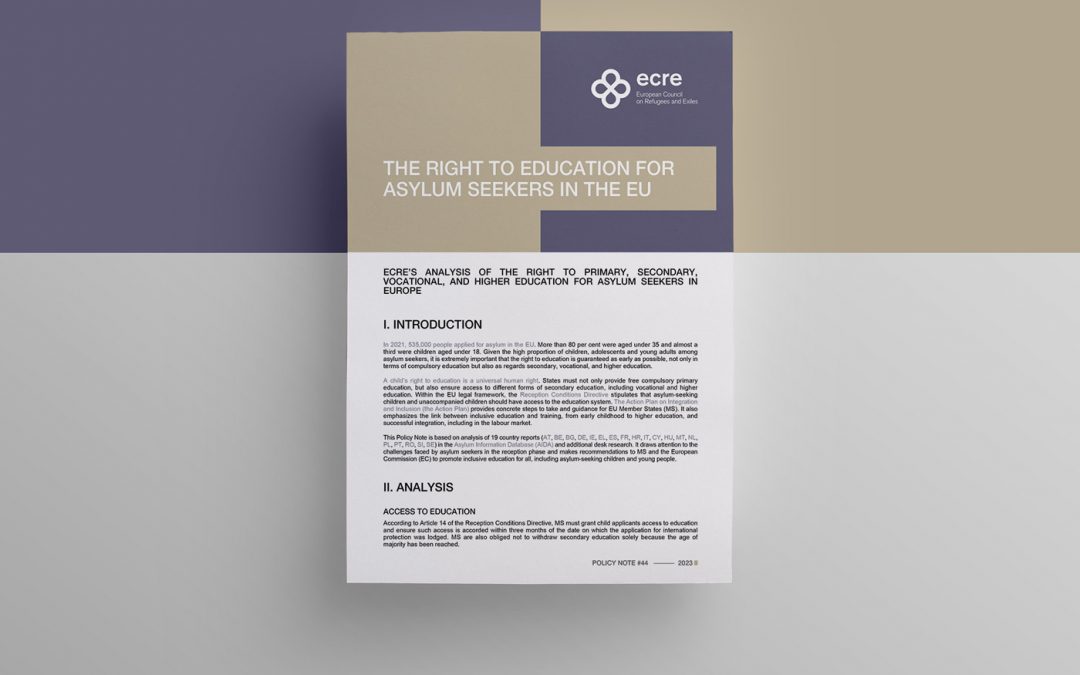ECRE published this week a Policy Note which analyses the challenges faced by asylum seekers in the EU to access their right to education, from primary-level education to higher and vocational education. It is based on the analysis of the 19 country reports (AT, BE, BG, DE, IE, EL, ES, FR, HR, IT, CY, HU, MT, NL, PL, PT, RO, SI, SE) of the Asylum Information Database (AIDA) and further desk research.
Since a high share of people in need of protection in the EU is children and young adults, education is one of the most important domains of integration, not only because the right of a child to education is a universal human right, but also because inclusive education and training from early childhood to higher education are crucial for the successful inclusion of newcomers, which leads integration to labour market afterward.
The Policy Note identifies a number of challenges that asylum-seeking children and youth must overcome to access education during the reception phase, from compulsory education to post-compulsory education. This includes the limited quality or absence of language and preparatory courses, the lack of information about educational systems, segregated classrooms, the age limit on compulsory education, and requirements to access higher and vocational education that are very difficult to meet. It raises that education cannot be treated separately from the asylum procedures and other domains of integration such as accessing housing. The Policy Note also covers the difficulties unaccompanied children and asylum-seeking children with special needs may face when continuing their education in Member States. On the other hand, it also presents good initiatives, which can be expanded in other Member States or for other groups, to facilitate accessing education for all asylum-seekers
When comparing the conditions in Member States, there is not a common standard of reception conditions that ensures access to education for asylum seekers. There are not only many differences in practices between Member States, but also between regions, cities, and even schools. Hence, depending on the country where asylum seekers apply for protection, they face different treatments to access their right to education.
The Policy Note concludes with recommendations to the Member States and the European Commission to promote inclusive education for all, including asylum-seeking children and youth, and to provide targeted support to ensure access to education for all people seeking protection in the EU.
For more information:
- ECRE, Asylum Information Database(AIDA)
This article appeared in the ECRE Weekly Bulletin. You can subscribe to the Weekly Bulletin here.

